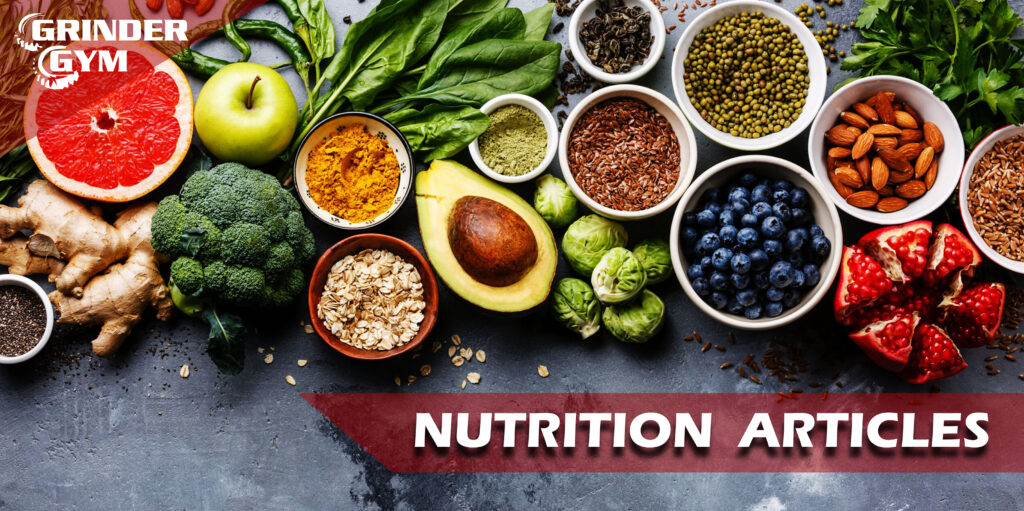
Endurance training demands a unique nutritional approach, distinct from other forms of exercise like strength training. Whether you’re a runner, cyclist, swimmer, or triathlete, how you fuel your body before, during, and after your workouts can greatly impact your performance and recovery. This article explores nutrient timing strategies tailored specifically for endurance athletes, helping you maximize your stamina, sustain energy levels, and enhance recovery.
How to Properly Fuel Endurance Training
Endurance training primarily relies on carbohydrates for energy, but proteins and fats also play critical roles in performance and recovery. Understanding the functions of these macronutrients and how they contribute to endurance exercise is key to optimizing your diet.
- Carbohydrates: The primary fuel source for endurance activities. Stored in the muscles and liver as glycogen, carbohydrates are essential for maintaining energy during prolonged exercise.
- Proteins: Important for muscle repair and recovery, proteins also play a role in energy metabolism, especially during long-duration events where glycogen stores may be depleted.
- Fats: While carbohydrates are the main fuel during high-intensity efforts, fats provide a significant energy source during longer, lower-intensity endurance activities.
Hydration is equally crucial, as even slight dehydration can impair endurance performance. Electrolytes, such as sodium, potassium, and magnesium, are essential for maintaining fluid balance and preventing cramps during prolonged exercise.
Timing Your Workout Nutrition
Nutrient timing is vital for endurance athletes, helping to maintain energy levels, delay fatigue, and promote efficient recovery. Proper timing of carbohydrates, proteins, and fluids can make a significant difference in how you perform and recover.
Pre-Workout Nutrition for Endurance Training
What you eat before an endurance workout sets the stage for your performance. A well-balanced pre-workout meal should provide sufficient energy while being easy to digest.
- Carbohydrates: Focus on consuming complex carbohydrates 2-3 hours before your workout to maximize glycogen stores. This provides a steady release of energy during your activity.
- Proteins: Including a moderate amount of protein in your pre-workout meal can help support muscle repair during your session.
- Fats: While fats can provide sustained energy for long-duration activities, they should be consumed in moderation to avoid gastrointestinal distress.
Example Pre-Workout Meal:
- Whole grain pasta with a lean protein source like chicken breast and a side of vegetables.
- A banana with peanut butter and a small serving of Greek yogurt.
Intra-Workout Nutrition for Endurance Training
During endurance events, maintaining energy levels is crucial. Intra-workout nutrition focuses on replenishing glycogen stores, maintaining hydration, and preventing fatigue.
- Carbohydrates: Consuming 30-60 grams of carbohydrates per hour during prolonged endurance activities can help sustain energy levels. Sports drinks, energy gels, or easily digestible fruits like bananas are excellent options.
- Electrolytes: Replenishing electrolytes, especially sodium, is important to prevent dehydration and maintain muscle function. Consider using electrolyte tablets or sports drinks.
- Fluids: Hydration is key. Drink small amounts of water regularly throughout your workout to stay hydrated, especially in hot or humid conditions.
Example Intra-Workout Fuel:
- Sports drink with electrolytes and carbohydrates.
- Energy gels or chews at regular intervals.
- Small sips of water every 15-20 minutes.
Post-Workout Nutrition for Endurance Training
After a long endurance workout, your body needs to replenish glycogen stores, repair muscle tissue, and rehydrate. The post-workout period is crucial for recovery and preparation for your next session.
- Carbohydrates: Aim to consume carbohydrates within 30 minutes after your workout to replenish glycogen stores. A combination of simple and complex carbs works best for both quick and sustained energy replenishment.
- Proteins: Protein is essential for repairing muscle tissue that has been broken down during exercise. Aim for 15-25 grams of high-quality protein in your post-workout meal.
- Fluids: Rehydrate by drinking water or an electrolyte-rich drink to replace fluids lost through sweat.
Example Post-Workout Meal:
- A recovery smoothie with a mix of fruits, a scoop of protein powder, and a handful of spinach.
- Grilled salmon with quinoa and steamed vegetables.
- Chocolate milk, which provides a good balance of carbohydrates and proteins.
Consistent Daily Nutritional Habits: The Best Strategy
While nutrient timing is important, consistent daily nutritional habits form the foundation of your endurance performance. Regularly fueling your body with balanced meals and snacks helps to sustain energy levels, support recovery, and optimize performance.
- Meal Planning: Include a variety of nutrient-dense foods in your diet to cover all your macronutrient needs. Whole grains, lean proteins, healthy fats, and plenty of fruits and vegetables should be staples in your diet.
- Frequent Meals: Eating smaller, more frequent meals throughout the day can help maintain stable energy levels and prevent overeating.
Meals: Structuring Your Day for Peak Endurance Performance
Your main meals—breakfast, lunch, and dinner—should be structured to support your endurance training goals.
- Breakfast: Kickstart your day with a meal rich in complex carbohydrates, lean proteins, and healthy fats. This provides sustained energy for your morning activities.
- Lunch: Focus on a balance of carbohydrates, proteins, and vegetables to keep energy levels stable throughout the day, particularly if you have an afternoon workout.
- Dinner: Include a good source of protein and carbohydrates to support recovery and prepare your body for the next day’s training.
Snacks: Bridging the Gaps in Your Nutrition
Snacks play a vital role in an endurance athlete’s diet, providing additional energy and nutrients between meals.
- Carbohydrate-Rich Snacks: Whole grain crackers with cheese, fruit with a handful of nuts, or a small bowl of oatmeal can provide sustained energy.
- Protein-Based Snacks: Greek yogurt with honey, a hard-boiled egg, or a protein bar can help with muscle recovery and repair.
Gap Nutrition: Addressing Nutritional Deficiencies
Despite careful planning, there may be times when your diet isn’t perfectly balanced. Gap nutrition helps fill in these deficiencies to ensure optimal performance and recovery.
- Supplements: Consider supplements like multivitamins, omega-3 fatty acids, or specific nutrients like iron and vitamin D if needed. Endurance athletes may also benefit from supplements like BCAAs or sports drinks formulated with electrolytes.
- Targeted Nutrition: Address specific dietary needs with whole foods first, and use supplements to support any remaining gaps.
Conclusion
For endurance athletes, proper nutrition and strategic nutrient timing are crucial to achieving peak performance. By understanding how to fuel your body before, during, and after workouts—and maintaining consistent daily habits—you can sustain energy, enhance recovery, and reach your endurance goals. Remember, while nutrient timing can offer benefits, it’s your overall daily nutrition that sets the foundation for success.
Recent Nutrition Articles:
NUTRITION








Comments are closed